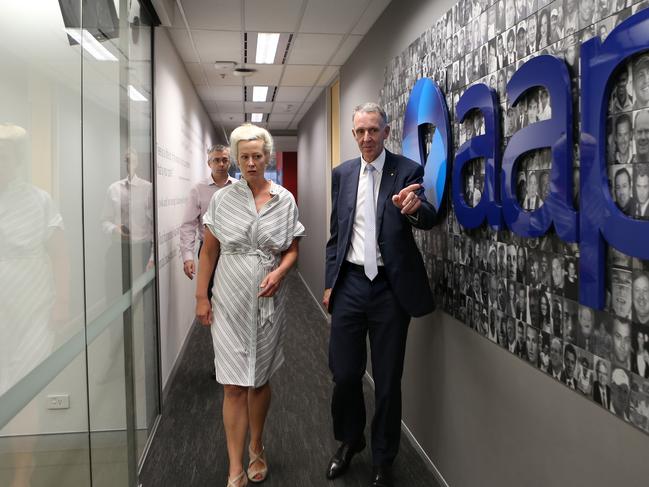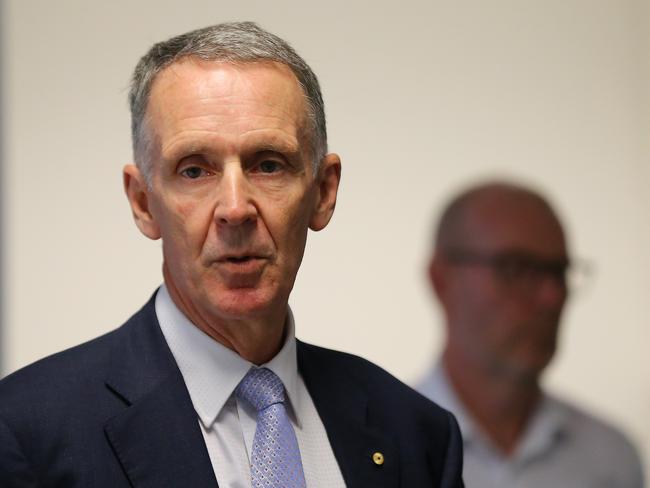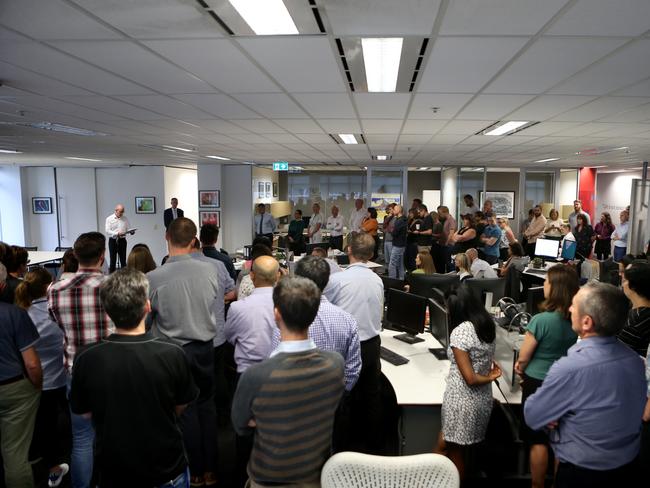AAP closes down: Global tech giants put media jobs at risk
The loss of Australia’s news wire service AAP should act as a “wake-up call” to the devastating impact cashed-up global tech giants are having on media organisations in Australia, its chairman says.
Social
Don't miss out on the headlines from Social. Followed categories will be added to My News.
- How tech expert got caught up in a sweeping online scam
- Facebook’s new tool paints a grim privacy picture
The loss of Australia’s news wire service should act as a “wake-up call” to the devastating impact cashed-up global tech giants are having on media organisations in Australia, its chairman says.
His comments come amid warnings there would be “more bad news” unless the government acted to protect the sector.
Australian Associated Press this week revealed it would close in June after 85 years in operation, putting 180 editorial jobs at risk.

The loss saw the Media Entertainment and Arts Alliance slam the Morrison Government for failing to protect the vital service by acting on recommendations contained in an 18-month inquiry into digital platforms.
AAP chairman Campbell Reid echoed the union’s sentiments on Wednesday, saying the impact of news stories published free of charge by social media networks and search engines had forced the closure of the outlet known for impartial, accurate, and comprehensive reporting.
“The AAP decision is a wake-up call for Australia that the detrimental impact the digital platforms are having on media companies is very real and has now reached a tipping point,” Mr Reid said.
“That is the reality. That is at the heart of why AAP is closing. No one should kid themselves otherwise.”

Attempts to remodel the service and regain subscribers failed, Mr Reid said, and the media would continue to suffer while waiting for the Federal Government to introduce a proposed code of conduct that would see tech giants “start paying for our content”.
“Today, people can pilfer content for free on the internet and the unfettered market power of Google and Facebook and the significant imbalance in bargaining power has decimated media business models,” he said.
“Until the platforms start paying publishers for their journalism instead of distributing it for free for their own profit then we are going to, sadly, see a lot more bad news in the media sector.”

The Australian Competition and Consumer Commission last year made 23 recommendations to address growing market power and anti-competitive behaviour of tech giants in Australia.
They included a code of conduct that would see the multibillion-dollar firms share revenue for using news stories created by Australian media organisations on their platforms, and negotiating “fairly, reasonably and transparently”.
As part of the ACCC’s digital platforms inquiry, MEAA chief executive Paul Murphy said the union and AAP also called for tech giants to invest in a “public interest journalism fund” to ensure important issues were brought to the public’s attention.
“In its final response to the ACCC inquiry last year, the Federal Government failed to pick up on this recommendations or even to introduce proper regulation of digital platforms,” Mr Murphy said.
“The AAP crisis makes it imperative that this proposal be revisited. The government must deal with the serious case of market failure that is resulting in a decline in quality public interest journalism, which is essential for our democracy.”
In its response to the ACCC’s 18-month inquiry, Federal Treasurer Josh Frydenberg ordered the ACCC to investigate the introduction of a “voluntary code” between digital platforms and news organisations “to be finalised no later than November 2020”.

